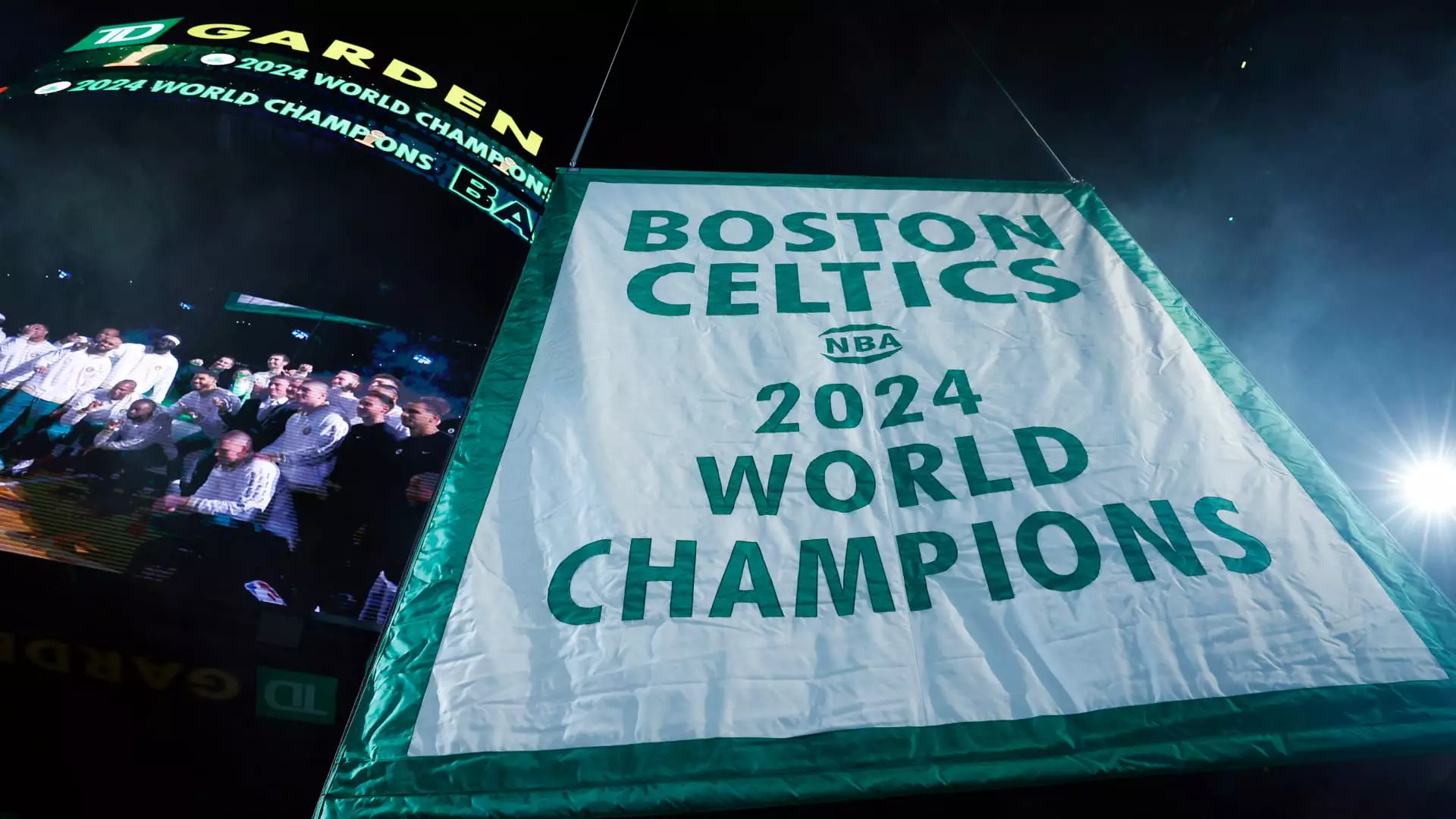In a monumental shift for the Boston Celtics, the private equity-led ownership group headed by Bill Chisholm is set to acquire the team for an unprecedented valuation of $6.1 billion—a record in the world of U.S. sports franchises. This hefty price tag not only reflects the growing financial power of sports teams but also signifies a cultural shift in how ownership is perceived and operated in the sports industry. The Celtics, one of the most storied franchises in the NBA with 18 championships, are now under the aegis of a collaborative ownership pool that includes Sixth Street and prominent Boston entrepreneurs like Rob Hale and Bruce Beal Jr.
The implications of this sale extend beyond mere numbers. With private equity’s entry into the sports domain, we must ponder the long-term consequences of such financial arrangements. While the Celtics are poised to maintain their competitive edge on the court with a robust leadership transition, the question remains: will the financial machinations of private equity serve the intrinsic values that sports represent, especially in a city where the Celtics are woven into the fabric of community identity?
An Emotional Connection or a Business Transaction?
Bill Chisholm has voiced what many in Boston believe—the Celtics are not just a sports team; they’re an institution. He paints himself as a lifelong fan whose love for the Celtics shapes his vision for future management. Nevertheless, it feels disingenuous to launder complex financial motives with nostalgic sentimentality. Is the fervor for the Celtics merely a springboard for business advantage? Or can genuine passion harmoniously coexist with capitalistic aspirations?
Chisholm’s proclamation about understanding the Celtics’ significance to Boston’s community hits hard. However, it also opens up a floodgate of skepticism about whether a private equity manager, no matter how die-hard his fandom, can truly embody the historical ethos of a team that has transcended basketball. The implications of such ownership patterns raise questions: Will the pressure to prioritize profitability overshadow community engagement? Will fans and players still feel the deep-rooted connection to a franchise now entangled in the financial stratosphere?
Valuation Versus Legacy
The astronomical valuation of $6.1 billion positions the Celtics at the intersection of philanthropy and profitability. While the franchise’s value soared driven by lucrative media deals—like the NBA’s recently signed $76 billion agreement with major broadcasters—there is a stark contrast between revenue generation and legacy preservation. For generations, the Celtics have stood as paragons of perseverance, athletic excellence, and community pride. But as financial stakeholders proliferate, the challenge lies in reconciling the needs of shareholders with the heartfelt interests of the fans.
Moreover, as professional sports evolve into multimillion-dollar enterprises, the entry of private equity firms like Sixth Street denotes not just financial backing but a complete overhaul in team dynamics. This transition opens a Pandora’s box of questions: Will the communal experience of being a Celtics fan be diluted as the stakes rise? How will the intricate balance of team loyalty and profit margin affect the players, coaching staff, and ultimately, the game itself?
The Responsibility of Ownership
Chisholm has expressed awareness of the “responsibility as a leader” attached to the ownership of the Celtics. This comment could be viewed favorably; however, how much responsibility can he truly bear while juggling the competing interests of profit and cultural integrity? In the age of private equity, team owners must grapple with the paradox of being responsible custodians of history while being incentivized to maximize returns. If Chisholm’s ownership era fails to prioritize community relations and the essence of Celtics spirit, it could threaten to unbind the very heartstrings that have made the team a Boston staple.
To existing and future fans, this acquisition will test whether sentiment can hold a candle to cold, hard cash. Will Chisholm’s drive to connect with Boston’s basketball legacy reflect in the policies he implements? Can he create a transformative team ethos that respects the past while embracing the financial realities of modern sports?
With these monumental changes unfolding in the ownership of the Celtics, we remain at a crossroads—one that could either embrace the hope of continued legacy or solemnly acknowledge the encroaching influence of commercialism in a realm that thrives on community, loyalty, and athletic achievement.

